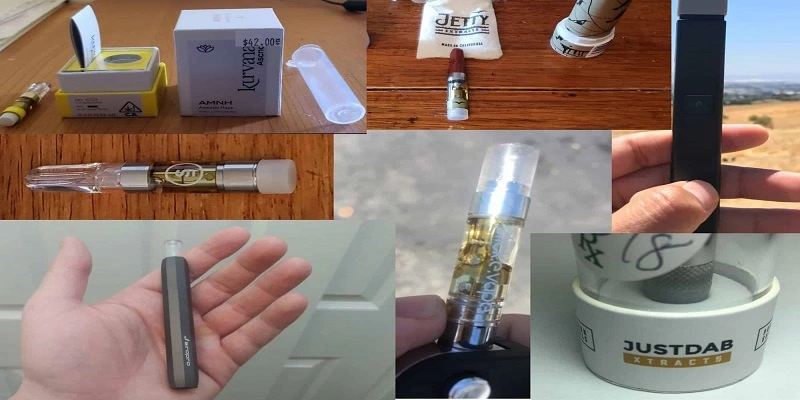
Delta 8 carts, or Delta 8 THC cartridges, have gained significant popularity in recent times as an alternative to traditional THC products. Derived from hemp, Delta 8 THC is a psychoactive compound that offers a milder high compared to its more well-known counterpart, Delta 9 THC. However, the surge in popularity has raised concerns about the safety of using Delta 8 carts. As an expert in the field, I will delve into the intricacies of Delta 8 carts, exploring their safety, benefits, and risks and offering guidance on responsible usage.
Delta 8 THC:
Delta 8 THC is one of over a hundred cannabinoids found in the cannabis plant. Unlike Delta 9 THC, which is the primary psychoactive compound in marijuana, Delta 8 THC is typically sourced from hemp. The extraction process involves converting CBD into Delta 8 THC, creating a product that offers users a mild, euphoric high without the intense psychoactive effects associated with Delta 9 THC.
The Legality of Delta 8 THC:
The legal status of Delta 8 THC varies across different regions. While Delta 8 THC derived from hemp is federally legal in the United States under the 2018 Farm Bill, some states have imposed restrictions or outright bans. It’s crucial for consumers to be aware of the legal landscape in their specific location before purchasing and using Delta 8 carts.
Safety Concerns and Quality Control:
One of the primary safety concerns with Delta 8 carts revolves around the manufacturing process and quality control. The industry is still relatively young, so there is a lack of standardized regulations. Some products on the market may contain impurities or unsafe additives, emphasizing the importance of choosing reputable and transparent brands.
To ensure safety, consumers should look for products that have undergone third-party lab testing. These tests verify the purity and potency of the Delta 8 THC, ensuring that it meets safety standards and contains no harmful substances.
Potential Side Effects and Risks:
While Delta 8 THC is generally considered to be less potent than Delta 9 THC, it is not without its potential side effects. Users may experience mild euphoria, relaxation, and increased sociability. However, adverse effects such as anxiety, paranoia, and dizziness can occur, particularly in higher doses.
Individual reactions to Delta 8 THC can vary, and those with a history of anxiety or mental health issues should exercise caution. Pregnant or nursing individuals, as well as those with heart conditions, are advised to consult with a healthcare professional before using Delta 8 carts.
Responsible Usage and Dosage:
Responsible usage ensures a safe and enjoyable experience with Delta 8 carts. Start with a low dose and gradually increase it to gauge your tolerance. It’s advisable to use Delta 8 THC in a controlled environment. Avoid operating heavy machinery or driving while under its influence.
Consumers should also be mindful of the potential for developing a tolerance to Delta 8 THC and the risk of dependence. Using it occasionally rather than habitually can help mitigate these concerns.
Conclusion:
In conclusion, the safety of using Delta 8 carts hinges on various factors, including product quality, dosage, and individual health considerations. While Delta 8 THC offers a unique and milder alternative to traditional THC, consumers must prioritize responsible usage. Stay informed about legalities, and choose products from reputable sources. As the industry evolves, ongoing research will contribute to a better understanding of the long-term effects and benefits of Delta 8 THC.
FAQs
Can Delta 8 THC show up on a drug test?
While Delta 8 THC is different from Delta 9 THC, some drug tests may detect both compounds. It’s essential to be aware of this possibility, especially for individuals subject to regular drug testing.
What are the potential long-term effects of using Delta 8 carts?
The long-term effects of Delta 8 THC use are not yet well-documented. Research is ongoing to understand any potential impact on mental health, cognitive function, or other aspects of well-being.
Are there age restrictions for purchasing Delta 8 carts?
Just like with any cannabis-related product, there are age restrictions for purchasing Delta 8 carts. Consumers should adhere to the legal age requirements in their jurisdiction.
Can Delta 8 carts be used for medicinal purposes?
Some users report using Delta 8 carts for medicinal purposes, such as managing pain, anxiety, or insomnia. However, more research is needed to validate these claims, and individuals seeking therapeutic benefits should consult with a healthcare professional.
How do I store Delta 8 carts to maintain their potency?
To preserve the potency of Delta 8 carts, store them in a cool, dark place away from direct sunlight and extreme temperatures. Avoid prolonged exposure to air, which can degrade the cannabinoids. Proper storage ensures a consistent and enjoyable experience.
Are there any reported cases of adverse reactions to Delta 8 THC?
While Delta 8 THC is generally well-tolerated, there have been isolated reports of adverse reactions. These can include anxiety, paranoia, dry mouth, and red eyes. Users experiencing persistent or severe side effects should seek medical attention.
Can I mix Delta 8 THC with other substances like alcohol or prescription medications?
It is advisable to avoid combining Delta 8 THC with alcohol or prescription medications without consulting a healthcare professional. Interactions between substances can vary, and a medical professional can provide personalized guidance based on individual health circumstances.







